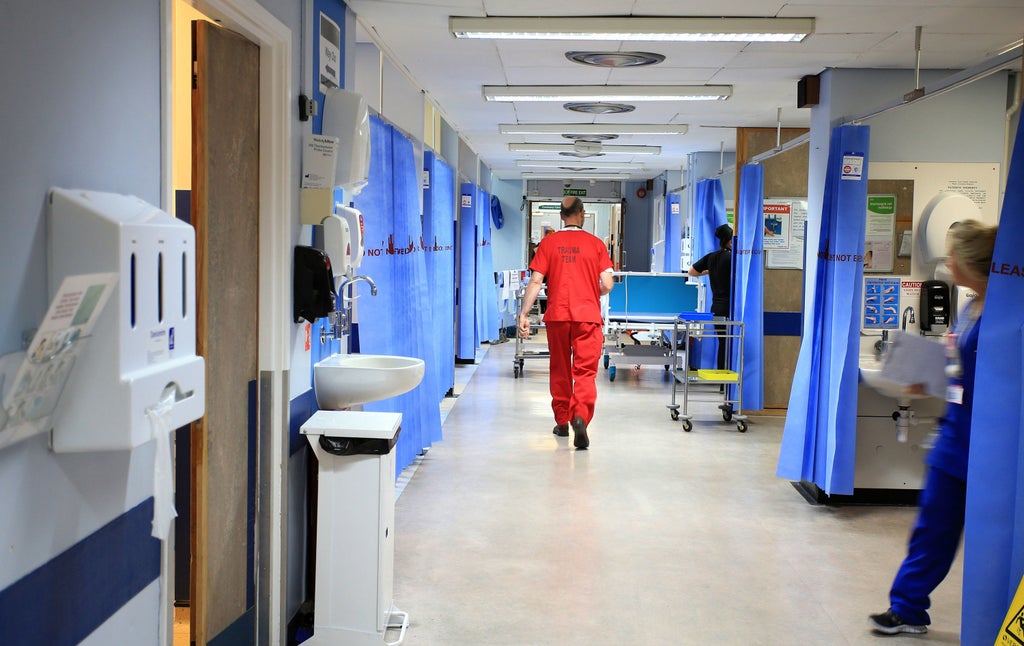
Dozens of new cases of sudden hepatitis have been discovered in young children in the UK, as scientists continue to search for the cause of the recent wave of illnesses.
A total of 145 cases of hepatitis – liver inflammation – have now been discovered in children under the age of 10, according to the UK Health Security Agency (UKHSA). This marks a rise of 34 since Monday.
So far, 10 children have received liver transplants.
Of the confirmed cases, 108 are in England, while 17 are in Scotland, 11 are in Wales and nine are in Northern Ireland, the UKHSA said.
The cases are predominantly in children under five years old who showed initial symptoms of diarrhoea and nausea followed by the onset of jaundice.
While the usual viruses that cause infectious hepatitis have not been detected in the affected children, an adenovirus has been identified in scores of the cases tested so far.
Despite the likely link to infection with an adenovirus, these viruses are not known to cause such a pattern of symptoms, and health authorities are actively investigating other possible contributing factors, such as another infection – including Covid-19 – or an environmental cause.
The UKHSA said it was also exploring whether increased susceptibility due to reduced exposure during the coronavirus pandemic could be playing a role, or if there has been a change in the genome of the adenovirus.
“We know that this may be a concerning time for parents of young children,” said Dr Meera Chand, the UKHSA’s director of clinical and emerging infections.
“The likelihood of your child developing hepatitis is extremely low. However, we continue to remind parents to be alert to the signs of hepatitis – particularly jaundice, which is easiest to spot as a yellow tinge in the whites of the eyes – and contact your doctor if you are concerned.
“Normal hygiene measures, including thorough handwashing and making sure children wash their hands properly, help to reduce the spread of many common infections.
“As always, children experiencing symptoms such as vomiting and diarrhoea should stay at home and not return to school or nursery until 48 hours after the symptoms have stopped.”
According to the World Health Organisation (WHO), at least 169 cases had been reported in 11 European countries and in the US, as of last Thursday. The vast majority were identified in the UK, which some experts have suggested is likely due to the UK having a better reporting system.
Adenovirus has been detected in at least 74 of the global cases tested so far, while 19 were found to have a co-infection of Covid-19 and an adenovirus, the WHO said.
“Factors such as increased susceptibility amongst young children following a lower level of circulation of adenovirus during the Covid-19 pandemic, the potential emergence of a novel adenovirus, as well as SARS-CoV-2 co-infection, need to be further investigated,” the WHO said.
“Hypotheses related to side effects from the Covid-19 vaccines are currently not supported as the vast majority of affected children did not receive Covid-19 vaccination.”
Prof Deirdre Kelly, a paediatric hepatologist at Birmingham Women’s and Children’s NHS trust who is working with the UKHSA to investigate the cases, told The Guardian that the surge seemed likely to be related to the coronavirus pandemic.
Investigators have found a medical report from 1924 which describes an increase in child hepatitis cases occurring in the wake of the influenza pandemic in 1918, according to Dr Kelly, who said: “They also had a surge in hepatitis, which is fascinating.”







